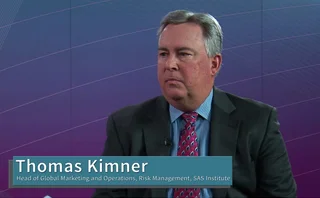
Isda issues new guidelines for derivatives transaction settlement
The International Swaps and Derivatives Association has published a set of guidelines for the matching, netting and settlement of cashflows arising from over-the-counter derivatives transactions.
The association’s paper has set out a three-step process, beginning with matching payments prior to settlement on a gross basis, followed by netting payments to allow a lower number of payments, and finally to arrive at a settlements clearing process. This final stage was, however, admitted to be, “a little way off”, by Julian Day, a policy director at Isda.
Day said the guidelines had been “driven as much as anything by considerations of cost, in terms of the staff levels required to resolve nostro breaks arising from incorrect gross settlements, as well as efficiency gains made available from making fewer settlements once firms begin netting payments.”
Settlement volumes between counterparties involved in derivatives transactions rose 20% during 2003, according to the 2004 Isda Operations Benchmarking Survey. The survey also mentioned that the time taken to resolve nostro breaks increased significantly. The guidelines were debated at a working group the association held over the summer, attended by industry participants as well as software vendors.
Day expects software companies to come up with offerings in the area very soon, noting that much of the functionality envisaged in the paper already exists within the securities sector. “There may be scope for adapting these systems for the derivatives sector,” he said, adding that any solution will have to be compliant with the programming language, FpML (Financial Products Mark-up Language). FpML is the industry standard for describing and transmitting derivatives transactions information between firms.
Only users who have a paid subscription or are part of a corporate subscription are able to print or copy content.
To access these options, along with all other subscription benefits, please contact info@risk.net or view our subscription options here: http://subscriptions.risk.net/subscribe
You are currently unable to print this content. Please contact info@risk.net to find out more.
You are currently unable to copy this content. Please contact info@risk.net to find out more.
Copyright Infopro Digital Limited. All rights reserved.
As outlined in our terms and conditions, https://www.infopro-digital.com/terms-and-conditions/subscriptions/ (point 2.4), printing is limited to a single copy.
If you would like to purchase additional rights please email info@risk.net
Copyright Infopro Digital Limited. All rights reserved.
You may share this content using our article tools. As outlined in our terms and conditions, https://www.infopro-digital.com/terms-and-conditions/subscriptions/ (clause 2.4), an Authorised User may only make one copy of the materials for their own personal use. You must also comply with the restrictions in clause 2.5.
If you would like to purchase additional rights please email info@risk.net
More on Infrastructure
Communications surveillance solutions 2024: market update
A report offering Chartis’ latest view of the vendor landscape for communications surveillance solutions
SIMONE, the AI that nearly took down a bank
An algorithm designed to create new structured products ran out of control last year with almost catastrophic consequences for a major bank, as our exclusive whistleblower account reveals
Revealed: where banks are (literally) warehousing their swaps
As derivatives notional grows, dealers experiment with novel storage solutions
E-trading takes hold for FX swaps – sort of
Bulk of trades are being executed over screen, but bolder changes have stalled
From DNA to DHA – Preparing for a new era of digital human augmentation
As technology increasingly permeates societies, cultures and everyday activities, its integration into people’s lives is having a profound impact on what is expected of people in the workplace. Deloitte examines this evolution of today’s workforce, the…
Risk and finance: Working more closely together
Video interview: Thomas Kimner, SAS
Video interview: Fabio Merlino, Intesa Sanpaolo
Fabio Merlino, head of retail and insurance risk discusses how the wealth management division of Intesa Sanpaolo upgraded its risk analytics capabilities with the algo system used by its proprietary traders
The changing face of Risk.net and our magazines
Extensive reader consultation has helped us reshape editorial teams and our site







